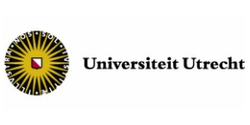PhD Position: Saying the right word at the right time
Updated: 01 May 2024
Infants and toddlers develop through exploration of their environment and in human interaction with caregivers. Initial evidence suggests that the combination of exploration and human interaction, where objects are named at the right time during moments of so-called embodied attention, may serve as main learning mechanisms in early vocabulary development. This study focusses on naturalistic contexts, the home and centre-based childcare in a diverse sample of infants/toddlers.
Your job
This project will provide insights regarding the (possibly complementary) effects of these contexts, while enhancing our understanding of the mechanisms of early vocabulary development, also in children from lower socioeconomic families, who often lag behind in (early) vocabulary development. The aims of the project are:
- to understand children’s exploration behaviour and the role of caregiver’s labelling behaviour during moments of embodied attention across the home and childcare context;
- to study the role of exploration behaviour and vocabulary development with caregiver labelling as moderator across contexts;
- to investigate differences in child and parental behaviour related to the family’s socio-economic background.
The full project description is available upon request. The supervision team consists of Dr Ora Oudgenoeg-Paz, Dr. Pauline Slot and Prof. Dr. Paul Leseman.
Your tasks will include:
- Conducting the research, including developing measurement instruments, recruiting participants and conducting observations and testing (with the help of students and a research assistant);
- Writing international publications about the research and writing a dissertation;
- Presenting the research at (inter)national conferences;
- Presenting the research to different stakeholders;
- Contributing actively to the research community;
- Teaching or supervising students.
Requirements:
We would love to hear from you, if:
- you have an (almost finished) (Research) Master’s degree in the field of developmental psychology, pedagogics, education, or a related field;
- you have excellent research and writing skills;
- you have well-developed analytical skills and you are preferably acquainted with Mplus and/or R;
- you have good social skills and affinity with data collection;
- you have excellent verbal and written communication skills in English;
- you have a good command of the Dutch language or are willing to learn Dutch. This is a requirement for the data collection. We offer free Dutch language courses to help you learn;
- you are an active team member with good communication skills.
Your suitability is ideally exemplified, if:
- you have worked with children and/or families;
- you have experience with conducting observations.
Salary Benefits:
We offer:
- a position for one year, with an extension to a total of five years upon successful assessment;
- a working week of 32 hours (0,80 FTE) and a gross monthly salary between €2,770 and €3,539 in the case of full-time employment (salary scale P under the Collective Labour Agreement for Dutch Universities (CAO NU);
- 8% holiday pay and 8.3% year-end bonus;
- a pension scheme, partially paid parental leave and flexible terms of employment based on the CAO NU.
In addition to the terms of employment laid down in the CAO NU, Utrecht University has a number of schemes and facilities of its own for employees. This includes schemes facilitating professional development, leave schemes and schemes for sports and cultural activities, as well as discounts on software and other IT products. We also offer access to additional employee benefits through our Terms of Employment Options Model. In this way, we encourage our employees to continue to invest in their growth. For more information, please visit Working at Utrecht University.
32 hours per week
Heidelberglaan 1

